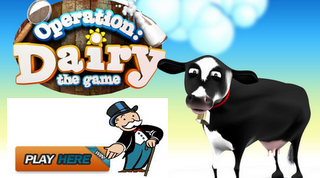Vitamin E is a naturally occurring fat soluble vitamin that was discovered in 1922. The term vitamin E encompasses several closely related compounds; the tocopherols and tocotrienols. Because of its chemical structure, vitamin E acts as a naturally occurring antioxidant and inhibits the spontaneous oxidation of highly unsaturated substances.
Animal requirements for vitamin E are determined by several factors including species, breed, animal size, diet composition, nutritional status, environment, stress, pathogenic disease, pregnancy, growth, and production. The source of vitamin E used, naturally occurring or synthetic, must be considered in meeting the animal's requirements. The stability of vitamin E in feedstuffs is very low. Extensive losses occur in feedstuffs that are high in moisture content, or undergo mechanical stress, microbial attack or prolonged storage time. Fortunately, the synthetic forms of vitamin E used in animal nutrition today are very stable as compared to naturally occurring sources.
Vitamin E has numerous functions in the body such as protecting molecular structures from oxidative damage. In addition, it maintains the integrity of the cell membrane which prevents serious damage to the cells throughout the body. This vitamin is thought to be the most important antioxidant in the body because it is readily absorbed and stored. Other functions of vitamin E include the regulation of many metabolic pathways as well as the synthesis and metabolism of a variety of compounds. Vitamin E is critical to maintaining liver and muscle health, and normal reproduction. Disease resistance is improved by vitamin E because it stimulates immunoglobulin formation.
The effect of vitamin E on immunity is very important. Immunity is an acquired condition that protects against specific causes of diseases and is characterized by the presence of specific antibodies (immunoglobulins) an protection from define infections. Research has shown that excess vitamin E has a stimulating effect on the formation of antibodies. This significantly enhances the humoral immune response or resistance to disease.
The importance of immunity can be no better illustrated than by the newborn calf. The calf relies solely on colostrum to receive the immunoglobulins it needs to obtain passive immunity, which is essential for survival. Once colostrum has been fed at the proper volume and times, we must consider what else can be done for the calf to maintain its health and maximize its immunity. While many factors play a role in the maintenance of health, nutrition is probably one of most critical. Vitamin E has already been mentioned as a key in immune function. Research at Kansas State University (Reddy et.al., 1986) found that calves supplemented with vitamin E exhibited enhanced humoral and cell mediated immune responses. It is theorized that vitamin E may possibly reduce calf morbidity and mortality caused by pathogens. These researchers found that calves given high oral supplementation of vitamin E demonstrated higher serum IgM levels compared to unsupplemented calves. This indicates the capability of a higher primary immune response, because IgM is the first class of antibodies to appear in the immune response to most antigens. In addition, these calves tended to consume more starter and gain more weight than those not supplemented.
All product names registered or trademarked by Merrick's, Inc.























